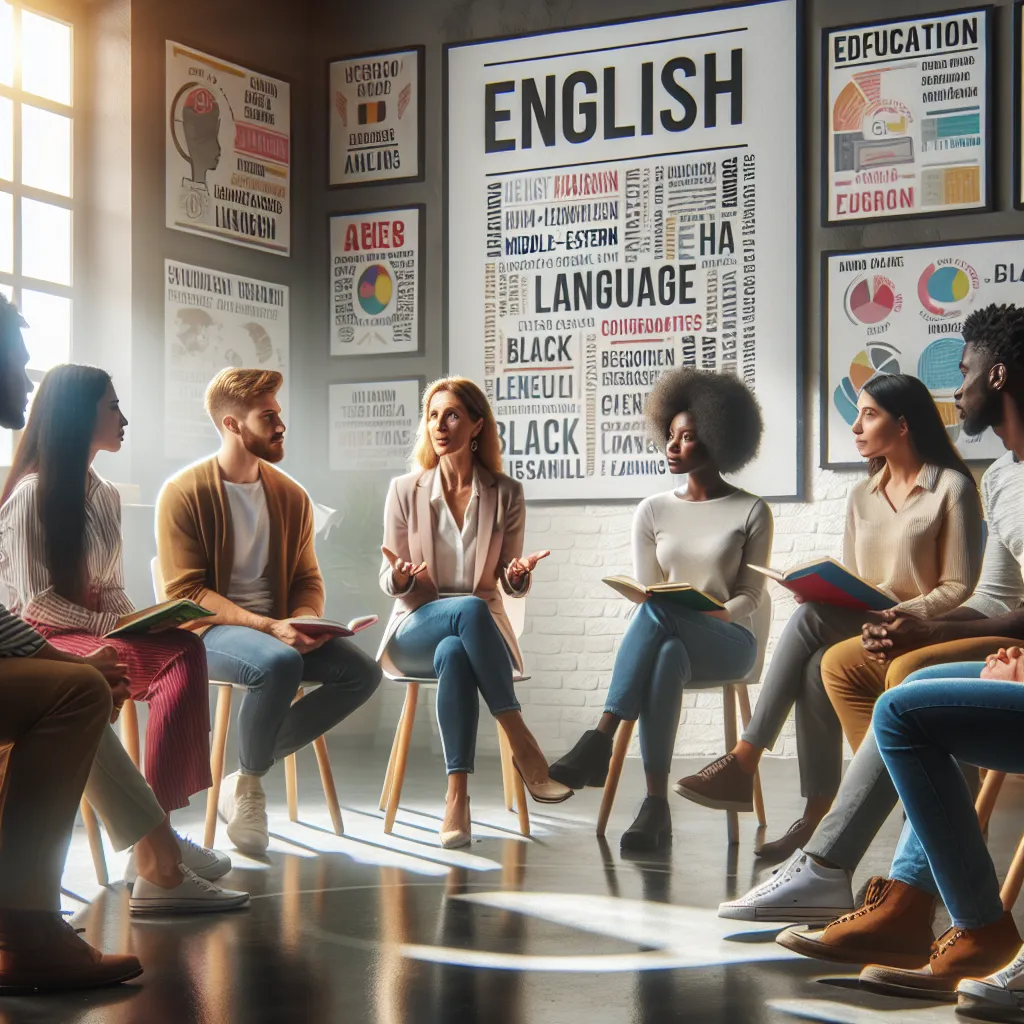Are you looking to take your English skills to the next level? Discussion groups can be an excellent way to practice and improve your language abilities. In this article, we’ll explore some effective Tips For Mastering English Through Discussion Groups, helping you become more confident and fluent in your communication.
Why Discussion Groups are Valuable for English Learners
Discussion groups provide a unique opportunity for language learners to practice their speaking and listening skills in a supportive environment. By engaging in conversations with others, you can:
- Improve your vocabulary and grammar
- Enhance your pronunciation and fluency
- Gain confidence in expressing your ideas
- Learn about different cultures and perspectives
- Develop critical thinking skills
 Diverse group of people engaged in English discussion
Diverse group of people engaged in English discussion
Tips for Making the Most of Discussion Groups
1. Prepare in Advance
Before attending a discussion group, take some time to prepare:
- Research the topic: Familiarize yourself with the subject matter to be discussed.
- Make notes: Jot down key points and questions you’d like to raise.
- Review relevant vocabulary: Look up words and phrases related to the topic.
By preparing in advance, you’ll feel more confident and ready to participate actively in the discussion.
2. Listen Actively
Active listening is crucial for effective participation in discussion groups:
- Focus on understanding others’ viewpoints
- Take mental notes of new vocabulary or expressions
- Pay attention to pronunciation and intonation
Remember, learning from others is just as important as expressing your own ideas.
3. Speak Up and Contribute
Don’t be afraid to share your thoughts and opinions:
- Start with short contributions if you’re nervous
- Ask questions when you need clarification
- Build on others’ ideas to keep the conversation flowing
The more you practice speaking, the more comfortable and confident you’ll become.
4. Use New Vocabulary and Expressions
Discussion groups are perfect for putting new language into practice:
- Try to incorporate recently learned words and phrases
- Experiment with idiomatic expressions
- Ask for feedback on your usage
This practical application will help reinforce your learning and expand your language skills.
5. Embrace Mistakes as Learning Opportunities
Don’t let the fear of making mistakes hold you back:
- View errors as a natural part of the learning process
- Ask for corrections when you’re unsure
- Learn from the mistakes of others in the group
Remember, even native speakers make mistakes sometimes!
6. Participate in a Variety of Discussion Formats
Explore different types of discussion groups to broaden your experience:
- In-person meetups
- Online forums
- Video chat sessions
- Book clubs
- Debate clubs
Each format offers unique benefits and challenges, helping you become a more well-rounded English speaker.
Common Challenges and How to Overcome Them
Overcoming Shyness
If you’re feeling shy or anxious about participating:
- Start small by introducing yourself and making brief comments
- Set a goal to contribute at least once per session
- Remember that others are likely feeling nervous too
For more tips on building confidence in English, check out our article on strategies for mastering English through peer teaching.
Dealing with Fast-Paced Conversations
When discussions move quickly:
- Don’t hesitate to ask for clarification or repetition
- Focus on understanding the main ideas rather than every word
- Practice active listening techniques to improve your comprehension
To further enhance your listening skills, consider how to improve English comprehension with podcasts.
Handling Disagreements
When opinions differ:
- Express your viewpoint respectfully
- Use phrases like “I see your point, but…” or “I respectfully disagree because…”
- Focus on the issue, not the person
Learning to navigate disagreements politely is an essential skill in English discussions.
Next Steps: Taking Your English to the Next Level
After mastering the basics of discussion groups, consider these advanced techniques:
- Lead a discussion: Volunteer to moderate or lead a session to challenge yourself further.
- Explore specialized topics: Join groups that focus on your professional field or personal interests.
- Participate in debates: For a more structured challenge, try improving English through debate practice.
- Seek feedback: Ask group members or a language partner for specific feedback on your performance.
- Set personal goals: Challenge yourself to use a certain number of new words or expressions in each session.
Conclusion
Discussion groups offer a dynamic and engaging way to improve your English skills. By following these tips and actively participating in various group settings, you’ll find yourself becoming more fluent, confident, and articulate in English. Remember, consistent practice and a willingness to step out of your comfort zone are key to language mastery.
Don’t be discouraged if progress seems slow at first – every conversation is a step forward in your language journey. Keep practicing, stay curious, and enjoy the process of becoming a more proficient English speaker through the power of discussion groups.
We’d love to hear about your experiences with English discussion groups. Share your tips and challenges in the comments below, and don’t forget to check out our other articles on effective English learning strategies!




